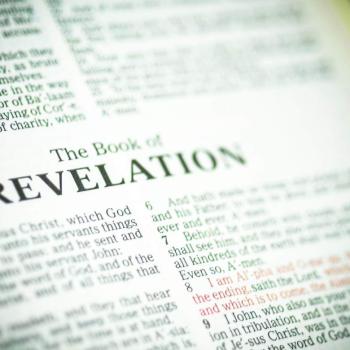
I’ve long since cared what the Bible says. I mean, I enjoy it as much as I enjoy any ancient text; it just doesn’t have any authority over my life. For those who do view it as authoritative, let me just say this: that premise is a logical fallacy.
Now, before you get your modest-is-hottest underwear in a bunch, allow me to explain.
According to Texas State’s Philosophy Department, begging the question is defined as follows:
The fallacy of begging the question occurs when an argument’s premises assume the truth of the conclusion, instead of supporting it. In other words, you assume without proof the stand/position, or a significant part of the stand, that is in question. Begging the question is also called arguing in a circle.
In its crudest form, arguing for biblical authority goes like this: The Bible is authoritative because it says so in the Bible, which we know is authoritative because it says so in the Bible.
Of course, most Christians wouldn’t put it in such an unrefined way. But even the most sophisticated arguments fail the fallacy test. Or, at least I haven’t heard an argument that doesn’t fail, one that compels me in any way, shape, or form.
Obviously, that doesn’t mean such an argument doesn’t exist. Just because I am not aware of one doesn’t make it not true. However, after having spent 25 years as an Evangelical Christian, I’m pretty sure I’ve heard just about every apologist’s stance on the issue. And the final verdict is that I have no reason to believe the Bible is any more authoritative than any other text.
If you have some never-before-seen argument, feel free to let me know, but I’m guessing that you don’t.
Problematizing things further, even if there was compelling evidence that the Bible was authoritative, what does that even mean? There are countless ways to interpret the Bible. Throughout the books contained therein – which can’t even be agreed upon – there are theological debates that often have no final verdict. As the old joke goes, if you have two rabbis interpreting the text, you’ll have three interpretations.
Of course, all this doesn’t mean that the Bible is pointless. It just means that it shouldn’t be prioritized above other ancient Scriptures. Not for nothing, but in the same way you argue for biblical authority, Muslims argue for Koranic authority, Hindus argue for Vedic authority, and so on and so forth.
To my mind, the real nuggets of truth are found when one can step back from any one text, and see the commonalities throughout all of them. Of course there are differences. Each set of Scriptures are birthed from a certain context. But the good stuff is found in noticing the similarities and not placing one over and against the other.
Will everyone agree with me? Of course not. But at the end of the day, the burden of proof is on the person making an affirmative claim. It’s not my job to prove that something isn’t; it’s your job to prove that something is.
So, have at it. Prove that the Bible should be authoritative without appealing to the Bible itself.
Good luck and Godspeed.
If you wanna get to know me better, please follow me on social media. I’m pretty active on all platforms:
Also, if you’ve been digging my work on here, and want to see me be able to continue writing as close to full-time as humanly possible, please take a look at my Patreon page at www.patreon.com/mjdistefano. Even $1 a month helps bigly!!!














